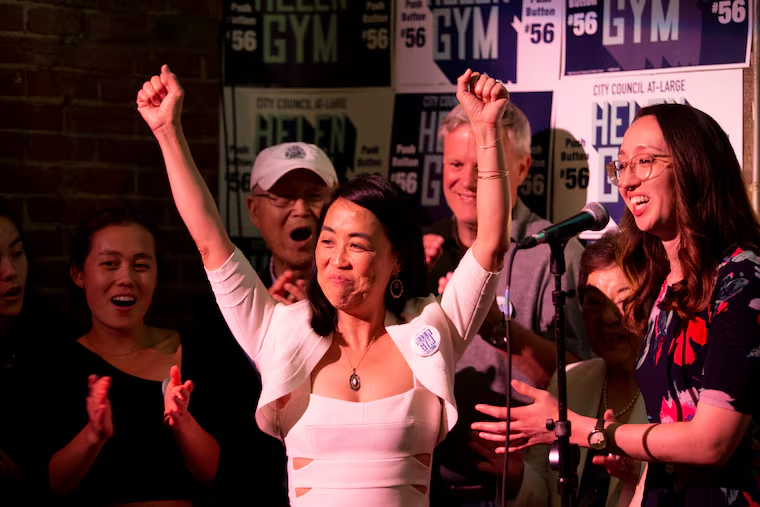Philly primary election results: Five takeaways on the day after | Editorial
This primary election was full of surprises ... or was it?

Elections not only put people in office (or, in the case of primaries, closer to office) but also give us tea leaves to read. What did this election mean? Are alliances shifting? How will it change the course of the city, or the course of the next election? All this requires serious thought, but meanwhile, a few obvious takeaways struck us right off the bat.
The machine is alive …
Overall, the establishment won. The party-supported incumbent mayor won. So did all five of the at-large candidates, eight of 10 district candidates, and the two candidates for City Commissioner. The list of winners also lines up well with the candidates supported by Local 98. If the story of the 2017 primary was of insurgent candidates like Rebecca Rhynhart who defeated the machine’s candidate with the support of a single ward, the story of 2019 is that it is a mistake to discount the ability of the Democratic establishment to win elections by putting its weight behind candidates.
… but incumbency won’t always save you
The ability of the establishment to protect incumbents is limited. Two of the longest-serving incumbents in Philadelphia politics were ousted Tuesday. Jannie Blackwell, who represented the 3rd district since 1991, lost to Jamie Gauthier, while Ronald Donatucci, the 40-year Register of Wills incumbent, lost to Tracey Gordon. Both were supported by the party. Embattled incumbent Sheriff Jewell Williams lost to former police officer Rochelle Bilal by 14 points. While incumbency has a strong effect in Philadelphia, there comes a point when voters say “enough.” This might be worrisome to Brian J. O’Neill, the only Republican incumbent district Council member. O’Neill was first elected to Council in 1979 and faces Democrat Judy Moore in the general election in the fall.
Identity and firsts
In this election, Philadelphia had the chance to elect the first openly gay member of council, the first trans woman, and the first immigrant. None of these candidates won. Identity matters in politics. . But at the end of the day, for the majority of voters, identity wasn’t enough to carry these candidates through the finish line.
The millennials are coming
Isaiah Thomas, 34, and Katherine Gilmore Richardson, 35, will both appear on the November ballot for at-large seats as council’s first two millennials. Overall, the Democrats in the next Council will be at least 7 years younger than the Democrats in the current Council — lowering the average age of Democrats to about 50. We are curious to see what changes in council that age drop will bring.
Standing strong pays off
Philadelphia overwhelmingly voted for Mayor Jim Kenney, who stuck with his signature beverage tax legislation even as the beverage industry spent millions of dollars demonizing the tax and the mayor who introduced it. Similarly, Helen Gym, who isn’t afraid to vocalize her beliefs , won more than 100,000 votes — 40,000 more than the next candidate for Council. There is a lesson for all Philly elected officials: It is worth fighting and following through on the things you believe in.